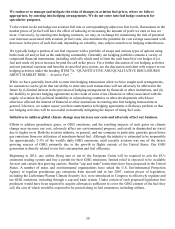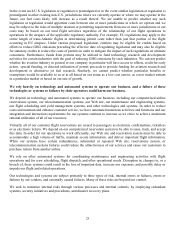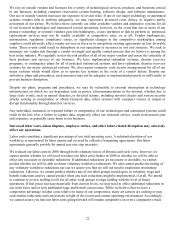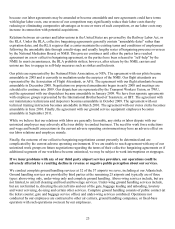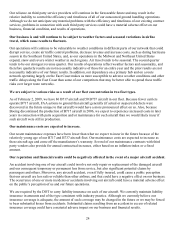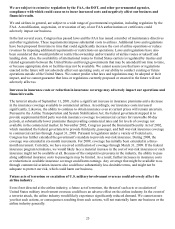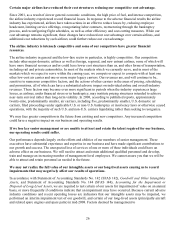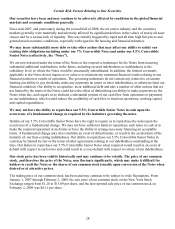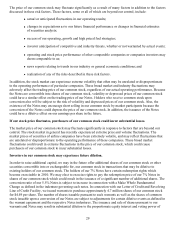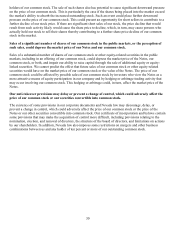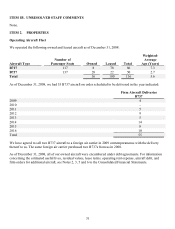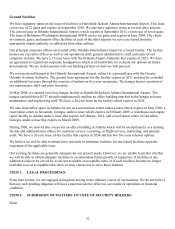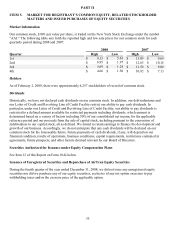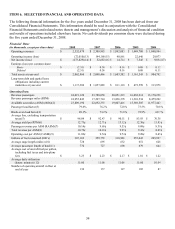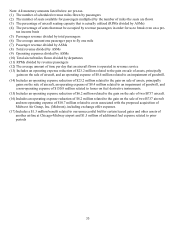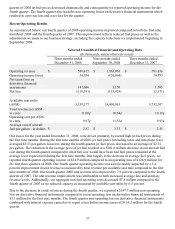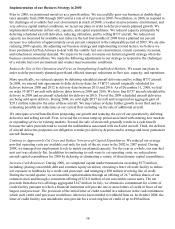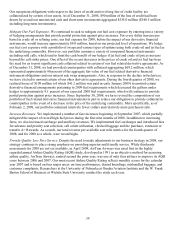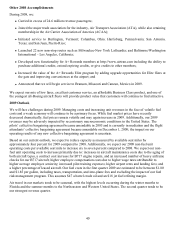Airtran 2008 Annual Report Download - page 38
Download and view the complete annual report
Please find page 38 of the 2008 Airtran annual report below. You can navigate through the pages in the report by either clicking on the pages listed below, or by using the keyword search tool below to find specific information within the annual report.holders of our common stock. The sale of such shares also has potential to cause significant downward pressure
on the price of our common stock. This is particularly the case if the shares being placed into the market exceed
the market's ability to absorb the increased outstanding stock. Such an event could place further downward
pressure on the price of our common stock. This could present an opportunity for short sellers to contribute to a
further decline of our stock price. If there are significant short sales of our stock, the price decline that would
result from such activity likely would cause the share price to decline, which, in turn, may cause persons who
actually hold our stock to sell their shares thereby contributing to a further share price decline of our common
stock in the market.
Sales of a significant number of shares of our common stock in the public markets, or the perception of
such sales, could depress the market price of our Notes and our common stock.
Sales of a substantial number of shares of our common stock or other equity-related securities in the public
markets, including in an offering of our common stock, could depress the market price of the Notes, our
common stock, or both, and impair our ability to raise capital through the sale of additional equity or equity-
linked securities. We cannot predict the effect that future sales of our common stock or other equity-related
securities would have on the market price of our common stock or the value of the Notes. The price of our
common stock could be affected by possible sales of our common stock by investors who view the Notes as a
more attractive means of equity participation in our company and by hedging or arbitrage trading activity that
may occur involving our common stock. This hedging or arbitrage could, in turn, affect the market price of the
Notes.
Our anti-takeover provisions may delay or prevent a change of control, which could adversely affect the
price of our common stock or our securities convertible into common stock.
The existence of some provisions in our corporate documents and Nevada law may discourage, delay, or
prevent a change in control, which could adversely affect the price of our common stock or the price of the
Notes or our other securities convertible into common stock. Our certificate of incorporation and bylaws contain
some provisions that may make the acquisition of control more difficult, including provisions relating to the
nomination, election, and removal of directors, the structure of the board of directors, and limitations on actions
by our shareholders. In addition, Nevada law also imposes some restrictions on mergers and other business
combinations between us and any holder of ten percent or more of our outstanding common stock.
30


